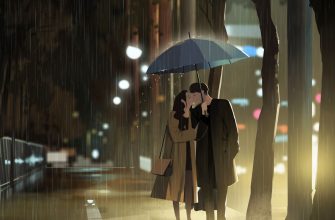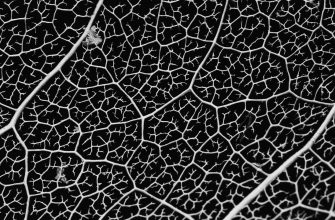Марко Поло биография на английском
Marco Polo biography поможет подготовить доклад на урок английского языка.
Marco Polo текст на английском
Marco Polo was born in around 1254 into a wealthy and cosmopolitan Venetian merchant family. Polo’s father and uncle, Niccolò and Maffeo Polo, were jewel merchants. In 1260, they left Venice to travel to the Black Sea, moving onwards to central Asia and joining a diplomatic mission to the court of Kublai Khan, the Mongol ruler of China. Khan asked the Polo brothers to return to Europe and persuade the pope to send scholars to explain Christianity to him. They arrived back in Venice in 1269.
In 1271, they set off again, accompanied by two missionaries and Marco, and in 1275 reached Khan’s summer court. For the next 17 years the Polos lived in the emperor’s lands. Little is known of these years, but Marco Polo was obviously popular with the Mongol ruler and was sent on various diplomatic missions which gave him the opportunity to see many parts of China.
Around 1292, the Polos offered to accompany a Mongol princess who was to become the consort of Arghun Khan in Persia. The party sailed from a southern Chinese port via Sumatra, Ceylon (now Sri Lanka), southern India, and the Persian Gulf. After leaving the princess in Iran, the Polos travelled overland to Constantinople and then to Venice, arriving home in 1295.
The Polos eventually departed for Europe and reached Venice in 1295. Marco became involved in a naval conflict between Venice and Genoa and in 1298 was captured by the Genoese. In prison, his stories attracted the attention of a writer from Pisa, Rustichello, who began to write them down, frequently embellishing them as he went. The resulting book was extremely popular and was translated into many languages under a number of titles, including ‘The Million’ and the ‘Travels of Marco Polo’.
After Polo was released he returned to Venice, where he remained for the rest of his life. He died on 8 January 1324.
Marco Polo short biography
Marco Polo was born in Venice, Italy 1254. Most of his childhood was parentless, he was raised by an extanded faimily. His mother died when he was young, his father and uncle were in Asia most of Marco Polo’s youth. When he grew up he traded paper money and coal used for fuel, he spent 20 years in Asia before returning to Venice. He married Donata Badoer the daughter of Vitale Badoer in 1300,and theyhad 3 kids Bella,Fantina, and Moretta. Marco Polo died January 8,1324, in his hometown Venice Italy.
Марко Поло биография на английском может быть сокращена по вашему усмотрению.
Marco Polo
Marco Polo is one of the most well-known heroic travelers and traders around the world. In my paper I will discuss with you Marco Polo’s life, his travels, and his visit to China to see the great Khan.
Marco Polo was born in c.1254 in Venice. He was a Venetian explorer and merchant whose account of his travels in Asia was the primary source for the European image of the Far East until the late 19th century. Marco’s father, Niccolт, and his uncle Maffeo had traveled to China (1260-69) as merchants. When they left (1271) Venice to return to China, they were accompanied by 17-year-old Marco and two priests.
In 1269, Niccolт and Maffeo Polo arrived back in Venice, where Niccolт found out his wife had died while he was gone(Rugoff 5). Their son, Marco, who was only about fifteen years old, had been only six or younger when his father left home:thus; Marco was reared primarily by his mother and the extended Polo family-and the streets of Venice. After his mother’s death, Marco had probably begun to think of himself as something of a orphan(Rugoff 6). Then his father and uncle suddenly reappeared, as if from the dead, after nine years of traveling in far-off, romantic lands. These experiences were the formative influences on young Marco, and one can see their effects mirrored in his character: a combination of sensitivity and toughness, independence and loyalty, motivated by an eagerness for adventure, a love of stories, and a desire to please or impress(Li Man Kin 10).
Life’s Work In 1268, Pope Clement IV died, and a two- or three-year delay while another pope was being elected gave young Marco time to mature and to absorb the tales of his father and uncle. Marco was seventeen years old when he, his father and uncle finally set out for the court of Kublai Khan(Stefoff 13). They were accompanied not by one hundred wise men but by two Dominican friars, and the two good friars turned back at the first sign of adversity, another local war in the Levant. Aside from the pope’s messages, the only spiritual gift Europe was able to furnish the great Kublai Khan was oil from the lamp burning at Jesus Christ’s supposed tomb in Jerusalem. Yet, in a sense, young Marco, the only new person in the Polos’ party, was himself a fitting representative of the spirit of European civilization on the eve of the Renaissance, and the lack of one hundred learned Europeans guaranteed that he would catch the eye of the Cowan, who was curious about «Latins»(Hull 29).
On the way to the khan’s court, Marco had the opportunity to complete his education. The journey took three and a half years by horseback through some of the world’s most rugged terrain, including snowy mountain ranges, such as the Pamirs, and parching deserts, such as the Gobi. Marco and his party encountered such hazards as wild beasts and brigands; they also met with beautiful women, in whom young Marco took a special interest. The group traveled numerous countries and cultures, noting food, dress, and religion unique to each(Li Man Kin 17). In particular, under the khans’s protection the Polos were able to observe a large portion of the Islamic world at close range, as few if any European Christians had. By the time they reached the khan’s court in Khanbalik, Marco had become a hardened traveler. He had also received a unique education and had been initiated into manhood.
Kublai Khan greeted the Polos warmly and invited them to stay on in his court. Here, if Marco’s account is to be believed, the Polos became great favorites of the khan, and Kublai eventually made Marco one of his most trusted emissaries(Great Lives from History 16765). On these points Marco has been accused of gross exaggeration, and the actual status of the Polos at the court of the khan is much disputed. If at first it appears unlikely that Kublai would make young Marco an emissary, upon examination this seems quite reasonable. For political reasons, the khan was in the habit of appointing foreigners to administer conquered lands, particularly China, where the tenacity of the Chinese bureaucracy was legendary. The khan could also observe for himself that young Marco was a good candidate. Finally, Marco reported back so successfully from his fist mission-informing the khan not only on business details but also on colorful customs and other interesting trivia-that his further appointment was confirmed. The journeys specifically mentioned in Marco’s book, involving travel across China and a sea voyage to India, suggests that the khan did indeed trust him with some of the most difficult missions(Rugoff 25).
The Polos stayed on for seventeen years, another indication of how valued they were in the khan’s court. Marco, his father, and his uncle not only survived-itself an achievement amid the political hazards of the time-but also prospered(Great Lives from History 1678). Apparently, the elder Polos carried on their trading while Marco was performing his missions; yet seventeen years is a long time to trade without returning home to family and friends. According to Macro, because the khan held them in such high regard, he would not let them return home, but as the khan aged the Polos began to fear what would happen after his death(Hull 18). Finally an opportunity to leave presented itself when trusted emissaries were needed to accompany a Mongol princess on a wedding voyage by sea to Persia, where she was promised to the local khan. The Polos sailed from Cathay with a fleet of fourteen ships and a wedding party of six hundred people, not counting the sailors. Only a few members of the wedding entourage survived the journey of almost two years, but luckily the survivors included the Polos and the princess. Fortunately, too, the Polos duly delivered the princess not to the old khan of Persia, who had meanwhile died, but to his son(Li Man Kin 21).
From Persia, the Polos made their way back to Venice. They were robbed as soon as they got into Christian territory, but they still managed to reach home in 1295, with plenty of rich goods. According to Giovanni Battista Ramusio, one of the early editors of Marco’s book, the Polos strode into Venice looking like rugged Mongols(Stefoff 17). Having thought them dead, their relatives at first did not recognize them, then were astounded, and then were disgusted by their shabby appearance. Yet, according to Ramusio, the scorn changed to delight when the returned travelers invited everyone to a homecoming banquet, ripped apart their old clothes, and let all the hidden jewels clatter to the table(Great Lives from History 1676).
The rest of the world might have learned little about the Polos’ travels if fate had not intervened in Marco’s life. In his early forties, Marco was not yet ready to settle down. Perhaps he was restless for further adventure, or perhaps he felt obliged to fulfill his civic duties to his native city-state. In any event, he became involved in naval warfare between Venetians and their trading rivals, the Genoese, and was captured. In 1298, the great traveler across Asia and emissary of the khan found himself rotting in a prison in Genoa-an experience that could have ended tragically but instead took a lucky turn. In prison Marco met a man named Rustichello from Persia, who was a writer of romances(Stefoff 21). To pass the time, Marco dictated his observations about Asia to Rustichello, who, in writing them down, probably employed the Italianized Old French that was the language of medieval romances.
Their book was soon circulating, since Marco remained in prison only a year or so, very likely gaining his freedom when the Venetians and Genoese made peace in 1299(Rugoff 32).
After his prison experience, Marco was content to lead a quiet life in Venice with the rest of his family and bask in his almost instant literary fame. He married Donata Badoer, a member of the Venetian aristocracy. eventually grew up to marry nobles. Thus Marco seems to have spent the last part of his life moving in Venetian aristocratic circles. After living what was then a long life, Marco died in 1324, only seventy years of age. In his will he left most of his modest wealth to his three daughters, a legacy that included goods which he had brought back from Asia. His will also set free a Tartar slave, who had remained with him since his return from the court of the great khan(Li Man Kin 25).
Biography of Marco Polo, Famous Explorer
Archive Photos/Getty Images
Marco Polo was an inmate in the Genoese prison at the Palazzo di San Giorgio from 1296 to 1299, arrested for commanding a Venetian galley in a war against Genoa. While there, he told tales of his travels through Asia to his fellow prisoners and the guards alike, and his cellmate Rustichello da Pisa wrote them down.
Once the two were released from prison, copies of the manuscript, titled The Travels of Marco Polo, captivated Europe. Polo told tales of fabulous Asian courts, black stones that would catch on fire (coal), and Chinese money made out of paper. Ever since people have debated the question: Did Marco Polo really go to China, and see all of the things he claims to have seen?
Early Life
Marco Polo was probably born in Venice, although there is no proof of his place of birth, around 1254 CE. His father Niccolo and uncle Maffeo were Venetian merchants who traded on the Silk Road; little Marco’s father left for Asia before the child was born, and would return when the boy was a teenager. He may not have even realized that his wife was pregnant when he left.
Thanks to enterprising merchants such as the Polo brothers, Venice flourished at this time as the major trading hub for imports from the fabulous oasis cities of Central Asia, India, and far-off, wondrous Cathay (China). With the exception of India, the whole expanse of Silk Road Asia was under the control of the Mongol Empire at this time. Genghis Khan had died, but his grandson Kublai Khan was Great Khan of the Mongols as well as the founder of the Yuan Dynasty in China.
Pope Alexander IV announced to Christian Europe in a 1260 papal bull that they faced «wars of universal destruction wherewith the scourge of Heaven’s wrath in the hands of the inhuman Tartars [Europe’s name for the Mongols], erupting as it were from the secret confines of Hell, oppresses and crushes the earth.» For men such as the Polos, however, the now stable and peaceful Mongol Empire was a source of wealth, rather than of hell-fire.
Young Marco Goes to Asia
When the elder Polos returned to Venice in 1269, they found that Niccolo’s wife had died and left behind a 15-year-old son named Marco. The boy must have been surprised to learn that he was not an orphan, as well. Two years later, the teenager, his father, and his uncle would embark eastward on another great journey.
The Polos made their way to Acre, now in Israel, and then rode camels north to Hormuz, Persia. On their first visit to Kublai Khan’s court, the Khan had asked the Polo brothers to bring him oil from the Holy Sepulcher in Jerusalem, which Armenian Orthodox priests sold in that city, so the Polos went to the Holy City to buy the consecrated oil. Marco’s travel account mentions various other interesting peoples along the way, including Kurds and Marsh Arabs in Iraq.
Young Marco was put off by the Armenians, considering their Orthodox Christianity a heresy, puzzled by Nestorian Christianity, and even more alarmed by the Muslim Turks (or «Saracens»). He admired the beautiful Turkish carpets with the instincts of a merchant, however. The naive young traveler would have to learn to be open-minded about new peoples and their beliefs.
On to China
The Polos crossed into Persia, through Savah and the carpet-weaving center of Kerman. They had planned to sail to China via India but found that the ships available in Persia were too rickety to be trusted. Instead, they would join a trade caravan of two-humped Bactrian camels.
Before they departed from Persia, however, the Polos passed by the Eagle’s Nest, scene of Hulagu Khan’s 1256 siege against the Assassins or Hashshashin. Marco Polo’s account, taken from local tales, may have vastly exaggerated the fanaticism of the Assassins. Nevertheless, he was very happy to descend the mountains and take the road toward Balkh, in northern Afghanistan, famed as the ancient home of Zoroaster or Zarathustra.
In order to get to the Mongolian heartlands and Kublai Khan’s court, however, the Polos had to cross the high Pamir Mountains. Marco encountered Buddhist monks with their saffron robes and shaved heads, which he found fascinating.
Next, the Venetians traveled toward the great Silk Road oases of Kashgar and Khotan, entering the fearsome Taklamakan Desert of western China. For forty days, the Polos trudged across the burning landscape whose very name means «you go in, but you don’t come out.» Finally, after three and a half years of hard travel and adventure, the Polos made it to the Mongol court in China.
In Kublai Khan’s Court
When he met Kublai Khan, the founder of the Yuan Dynasty, Marco Polo was just 20 years old. By this time he had become an enthusiastic admirer of the Mongol people, quite at odds with the opinion in most of the 13th century Europe. His «Travels» notes that «They are those people who most in the world bear work and great hardship and are content with little food, and who are for this reason suited best to conquer cities, lands, and kingdoms.»
The Polos arrived in Kublai Khan’s summer capital, called Shangdu or «Xanadu.» Marco was overcome by the beauty of the place: «The halls and rooms. are all gilded and wonderfully painted within with pictures and images of beasts and birds and trees and flowers. It is fortified like a castle in which are fountains and rivers of running water and very beautiful lawns and groves.»
All three of the Polo men went to Kublai Khan’s court and performed a kowtow, after which the Khan welcomed his old Venetian acquaintances. Niccolo Polo presented the Khan with the oil from Jerusalem. He also offered his son Marco to the Mongol lord as a servant.
In the Khan’s Service
Little did the Polos know that they would be forced to remain in Yuan China for seventeen years. They could not leave without Kublai Khan’s permission, and he enjoyed conversing with his «pet» Venetians. Marco, in particular, became a favorite of the Khan’s and incurred a lot of jealousy from the Mongol courtiers.
Kublai Khan was extremely curious about Catholicism, and the Polos believed at times that he might convert. The Khan’s mother had been a Nestorian Christian, so it was not so great a leap as it might have appeared. However, conversion to a western faith might have alienated many of the emperor’s subjects, so he toyed with the idea but never committed to it.
Marco Polo’s descriptions of the wealth and splendor of the Yuan court, and of the size and organization of Chinese cities, struck his European audience as impossible to believe. For example, he loved the southern Chinese city of Hangzhou, which at that time had a population of about 1.5 million people. That is about 15 times the contemporary population of Venice, then one of Europe’s largest cities and European readers simply refused to give credence to this fact.
Return by Sea
By the time Kublai Khan reached the age of 75 in 1291, the Polos probably had just about given up hope that he would ever allow them to return home to Europe. He also seemed determined to live forever. Marco, his father, and his uncle finally got permission to leave the Great Khan’s court that year, so that they could serve as escorts of a 17-year-old Mongol princess who was being sent to Persia as a bride.
The Polos took the sea route back, first boarding a ship to Sumatra, now in Indonesia, where they were marooned by changing monsoons for 5 months. Once the winds shifted, they went on to Ceylon (Sri Lanka), and then to India, where Marco was fascinated by Hindu cow-worship and mystical yogis, along with Jainism and its prohibition on harming even a single insect.
From there, they voyaged on to the Arabian Peninsula, arriving back at Hormuz, where they delivered the princess to her waiting bridegroom. It took two years for them to make the trip from China back to Venice; thus, Marco Polo likely was just about to turn 40 when he returned to his home city.
Life in Italy
As imperial emissaries and savvy traders, the Polos returned to Venice in 1295 laden with exquisite goods. However, Venice was embroiled in a feud with Genoa over control of the very trade routes that had enriched the Polos. Thus it was that Marco found himself in command of a Venetian war galley, and then a prisoner of the Genoese.
After his release from prison in 1299, Marco Polo returned to Venice and continued his work as a merchant. He never went traveling again, however, hiring others to make expeditions instead of taking on that task himself. Marco Polo also married the daughter of another successful trading family and had three daughters.
In January of 1324, Marco Polo died at the age of about 69. In his will, he freed a «Tartar slave» who had served him since his return from China.
Although the man had died, his story lived on, inspiring the imaginations and adventures of other Europeans. Christopher Columbus, for example, had a copy of Marco Polo’s «Travels,» which he notated heavily in the margins. Whether or not they believed his stories, the people of Europe certainly loved to hear about the fabulous Kublai Khan and his wondrous courts at Xanadu and Dadu (Beijing).
Топик по английскому: Marco Polo
Топик по английскому: Marco PoloMarco Polo
Marco Polo is one of the most well-known heroic travelers and traders around the world. In my paper I will discuss with you Marco Polo’s life, his travels, and his visit to China to see the great Khan.
Marco Polo was born in c.1254 in Venice. He was a Venetian explorer and merchant whose account of his travels in Asia was the primary source for the European image of the Far East until the late 19th century. Marco’s father, Niccolт, and his uncle Maffeo had traveled to China (1260-69) as merchants. When they left (1271) Venice to return to China, they were accompanied by 17-year-old Marco and two priests.
Early Life Despite his enduring fame, very little was known about the personal life of Marco Polo. It is known that he was born into a leading Venetian family of merchants. He also lived during a propitious time in world history, when the height of Venice’s influence as a city-state coincided with the greatest extent of Mongol conquest of Asia(Li Man Kin 9). Ruled by Kublai Khan, the Mongol Empire stretched all the way from China to Russia and the Levant. The Mongol hordes also threatened other parts of Europe, particularly Poland and Hungary, inspiring fear everywhere by their bloodthirsty advances. Yet the ruthless methods brought a measure of stability to the lands they controlled, opening up trade routes such as the famous Silk Road. Eventually, the Mongols discovered that it was more profitable to collect tribute from people than to kill them outright, and this policy too stimulated trade(Hull 23).
Into this favorable atmosphere a number of European traders ventured, including the family of Marco Polo. The Polos had long-established ties in the Levant and around the Black Sea: for example, they owned property in Constantinople, and Marco’s uncle, for whom he was named, had a home in Sudak in the Crimea(Rugoff 8). From Sudak, around 1260, another uncle, Maffeo, and Marco’s father, Niccolт, made a trading visit into Mongol territory, the land of the Golden Horde(Russia), ruled by Berke Khan. While they were there, a war broke out between Berke and the Cowan of Levant, blocking their return home. Thus Niccolт and Maffeo traveled deeper into mongol territory, moving southeast to Bukhara, which was ruled by a third Cowan. While waiting there, they met an emissary traveling farther eastward who invited them to accompany him to the court of the great Cowan, Kublai, in Cathay(modern China). In Cathay, Kublai Khan gave the Polos a friendly reception, appointed them his emissaries to the pope, and ensured their safe travel back to Europe(Steffof 10). They were to return to Cathay with one hundred learned men who could instruct the Mongols in the Christian religion and the liberal arts.
In 1269, Niccolт and Maffeo Polo arrived back in Venice, where Niccolт found out his wife had died while he was gone(Rugoff 5). Their son, Marco, who was only about fifteen years old, had been only six or younger when his father left home:thus; Marco was reared primarily by his mother and the extended Polo family-and the streets of Venice. After his mother’s death, Marco had probably begun to think of himself as something of a orphan(Rugoff 6). Then his father and uncle suddenly reappeared, as if from the dead, after nine years of traveling in far-off, romantic lands. These experiences were the formative influences on young Marco, and one can see their effects mirrored in his character: a combination of sensitivity and toughness, independence and loyalty, motivated by an eagerness for adventure, a love of stories, and a desire to please or impress(Li Man Kin 10).
On the way to the khan’s court, Marco had the opportunity to complete his education. The journey took three and a half years by horseback through some of the world’s most rugged terrain, including snowy mountain ranges, such as the Pamirs, and parching deserts, such as the Gobi. Marco and his party encountered such hazards as wild beasts and brigands; they also met with beautiful women, in whom young Marco took a special interest. The group traveled numerous countries and cultures, noting food, dress, and religion unique to each(Li Man Kin 17). In particular, under the khans’s protection the Polos were able to observe a large portion of the Islamic world at close range, as few if any European Christians had. By the time they reached the khan’s court in Khanbalik, Marco had become a hardened traveler. He had also received a unique education and had been initiated into manhood.
Kublai Khan greeted the Polos warmly and invited them to stay on in his court. Here, if Marco’s account is to be believed, the Polos became great favorites of the khan, and Kublai eventually made Marco one of his most trusted emissaries(Great Lives from History 16765). On these points Marco has been accused of gross exaggeration, and the actual status of the Polos at the court of the khan is much disputed. If at first it appears unlikely that Kublai would make young Marco an emissary, upon examination this seems quite reasonable. For political reasons, the khan was in the habit of appointing foreigners to administer conquered lands, particularly China, where the tenacity of the Chinese bureaucracy was legendary. The khan could also observe for himself that young Marco was a good candidate. Finally, Marco reported back so successfully from his fist mission-informing the khan not only on business details but also on colorful customs and other interesting trivia-that his further appointment was confirmed. The journeys specifically mentioned in Marco’s book, involving travel across China and a sea voyage to India, suggests that the khan did indeed trust him with some of the most difficult missions(Rugoff 25).
The Polos stayed on for seventeen years, another indication of how valued they were in the khan’s court. Marco, his father, and his uncle not only survived-itself an achievement amid the political hazards of the time-but also prospered(Great Lives from History 1678). Apparently, the elder Polos carried on their trading while Marco was performing his missions; yet seventeen years is a long time to trade without returning home to family and friends. According to Macro, because the khan held them in such high regard, he would not let them return home, but as the khan aged the Polos began to fear what would happen after his death(Hull 18). Finally an opportunity to leave presented itself when trusted emissaries were needed to accompany a Mongol princess on a wedding voyage by sea to Persia, where she was promised to the local khan. The Polos sailed from Cathay with a fleet of fourteen ships and a wedding party of six hundred people, not counting the sailors. Only a few members of the wedding entourage survived the journey of almost two years, but luckily the survivors included the Polos and the princess. Fortunately, too, the Polos duly delivered the princess not to the old khan of Persia, who had meanwhile died, but to his son(Li Man Kin 21).
From Persia, the Polos made their way back to Venice. They were robbed as soon as they got into Christian territory, but they still managed to reach home in 1295, with plenty of rich goods. According to Giovanni Battista Ramusio, one of the early editors of Marco’s book, the Polos strode into Venice looking like rugged Mongols(Stefoff 17). Having thought them dead, their relatives at first did not recognize them, then were astounded, and then were disgusted by their shabby appearance. Yet, according to Ramusio, the scorn changed to delight when the returned travelers invited everyone to a homecoming banquet, ripped apart their old clothes, and let all the hidden jewels clatter to the table(Great Lives from History 1676).
The rest of the world might have learned little about the Polos’ travels if fate had not intervened in Marco’s life. In his early forties, Marco was not yet ready to settle down. Perhaps he was restless for further adventure, or perhaps he felt obliged to fulfill his civic duties to his native city-state. In any event, he became involved in naval warfare between Venetians and their trading rivals, the Genoese, and was captured. In 1298, the great traveler across Asia and emissary of the khan found himself rotting in a prison in Genoa-an experience that could have ended tragically but instead took a lucky turn. In prison Marco met a man named Rustichello from Persia, who was a writer of romances(Stefoff 21). To pass the time, Marco dictated his observations about Asia to Rustichello, who, in writing them down, probably employed the Italianized Old French that was the language of medieval romances.
Their book was soon circulating, since Marco remained in prison only a year or so, very likely gaining his freedom when the Venetians and Genoese made peace in 1299(Rugoff 32).
After his prison experience, Marco was content to lead a quiet life in Venice with the rest of his family and bask in his almost instant literary fame. He married Donata Badoer, a member of the Venetian aristocracy. eventually grew up to marry nobles. Thus Marco seems to have spent the last part of his life moving in Venetian aristocratic circles. After living what was then a long life, Marco died in 1324, only seventy years of age. In his will he left most of his modest wealth to his three daughters, a legacy that included goods which he had brought back from Asia. His will also set free a Tartar slave, who had remained with him since his return from the court of the great khan(Li Man Kin 25).
Works CitedGreat Lives from History. Ancient and Medieval Series. Pasadena, California: Salem Press, 1988. 2: 1675-1680. Hull, Mary. The Travels of Marco Polo. California: Lucent Books Inc., 1995. Li Man Kin. Marco Polo in China. Hong Kong: Kingsway International Publications, 1981. Rugoff, Milton. Marco Polo’s Adventures In China. New York: American Heritage Publishing Co., 1964. Stefoff, Rebecca. Marco Polo and the Medieval Explorers. Chelsea House Publishers, 1992.


:max_bytes(150000):strip_icc()/MarcoPoloEngravingArchivePhotosGetty-56a0405d3df78cafdaa0aedc.jpg)







